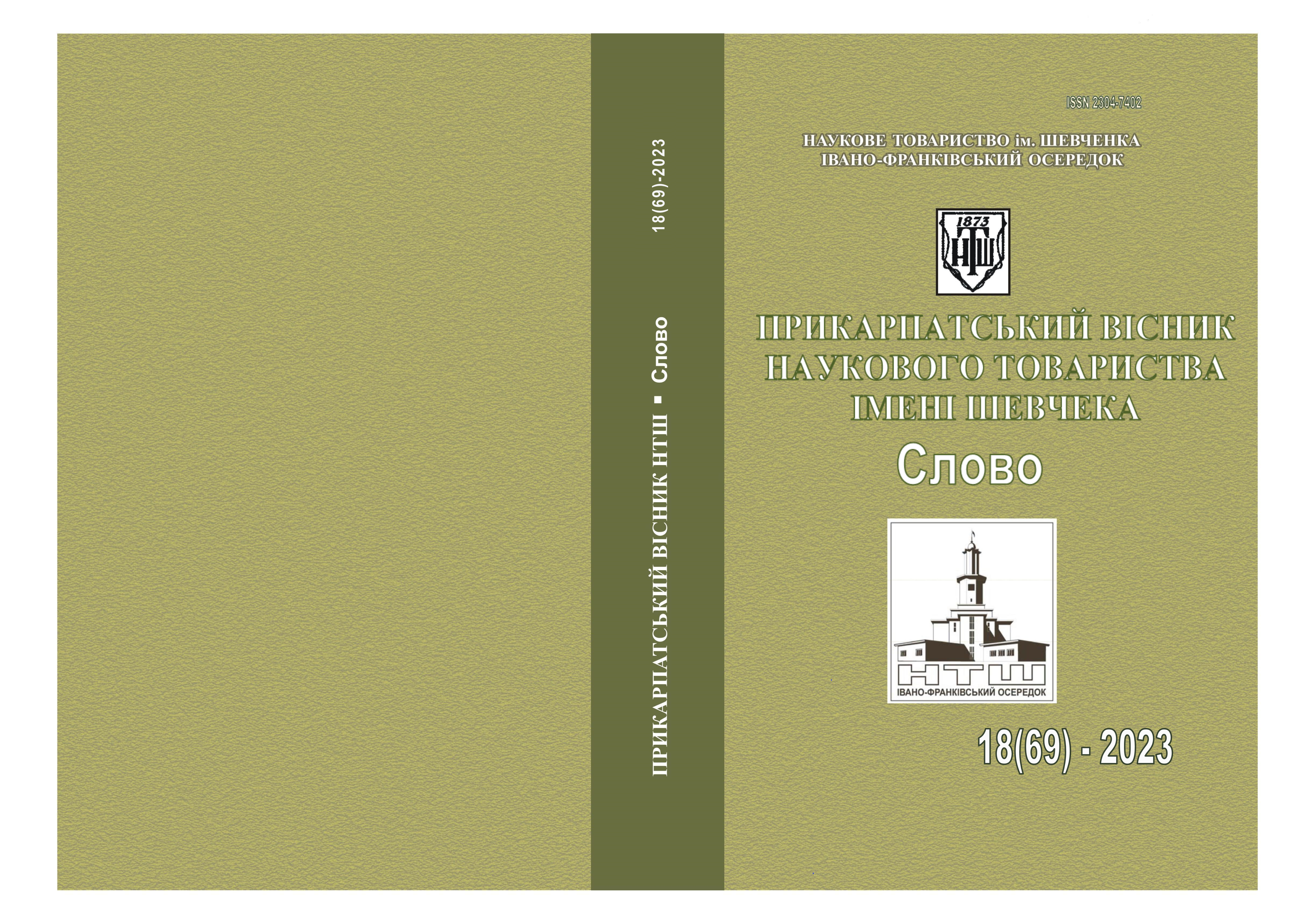NOMINATIVE FIELD OF THE CONCEPT HAPPINESS IN LATIN
DOI:
https://doi.org/10.31471/2304-7402-2023-18(69)-63-71Keywords:
Latin language, linguo-cultural concept, linguistic world picture, word, nominative field of the concept, lexical-semantic analysis.Abstract
The article is dedicated to the analysis of nominative field of the linguo-cultural concept Happiness in the Latin language. A corpus of its verbalizers which includes a variety of linguistic means, namely direct nominations of the concept felicitas, beatitudo, beatitia, fortuna which are marked by high frequency of usage, the greatest generalization in terms of their semantics in direct meaning, are stylistically neutral and form the core of the nominative field has been formed. This corpus also includes synonyms fors, commoditas, prosperitas, res secundae, res prosperae; common root words (units of different parts of speech) derivationally related to the main lexical means of verbalizing the concept (adjectives felix, beatus, beatificus, fortunatus, faustus, secundus, prosper, prosperus; verbs beare, fortunare, prosperare; adverbs feliciter, beate, fortunatim, fortunate).
For the purposes of the study representative information of explanatory, etymological, bilingual translated and synonym lexicographic sources of the Latin language was used. Their dictionary definitions do not only verbalize the knowledge of antique people, but also help to shape a complete linguistic picture of the world of the ancient Romans.
Traditionally for the methods of linguo-cultural research for the interpretation of the Latin lexemes-verbalizers of the concept Happiness a number of micro-contexts and paremic illustrations that clearly testify their semantic content which often goes beyond dictionary definitions, involves the components of moral-ethical and mental backgrounds since language does not only reflect reality but also interprets it was given.
References
Бусел В. Т. Великий тлумачний словник сучасної української мови. Київ – Ірпінь: ВТФ “Перун”, 2002. 1440 c.
Голубовська І.О. Антропологічна лінгвістика і класичні мови: можливості дослідження. Іноземна філологія. 2010. Випуск 122. С. 14 – 20.
Голубовська І. О. Етнічні особливості мовних картин світу. Київ: Логос, 2004. 283 с.
Жайворонок В.В. Знаки української етнокультури: словник-довідник. Київ: Довіра, 2006. 703 с.
Литвинов В. Д. Латинсько-український словник. Київ: Українські пропілеї, 1998. 712 с.
Милик О. В. Номінативне поле субконцепту SANITAS в латинській мові. Studia linguistica, 2018. Вип. 13. С. 203 – 214.
Петрова Г.Вс. Латинсько-український словотвірний словник. Тернопіль: Навчальна книга – Богдан, 2010. 880 с.
Пилипів О. Репрезентація лінгвокультурного концепту “Доля” в латинській фразеології. Вісник Львівського університету. Серія іноземні мови, 2013. Вип. 21. С. 226 – 233.
Цимбалюк Ю. В. Латинські прислів’я і приказки. Київ: Вища школа, 1990. 436 с.
Doederlein L. Handbuch der lateiniscnen Synonymik. Leipzig, 1849. 274 s.
Menge H. Kurzgefasste lateinishe Synonymik fur die obersten Gymnasialklassen. Wolfenbuttel, 1878. 236 s.
Totius Latinitatis Lexicon. Opera et studio Aeg. Forcellini et in hac editione post tertiam auctam et emendatam a I. Furlenetto. Prati: Aldianis, 1858 – 1875.

